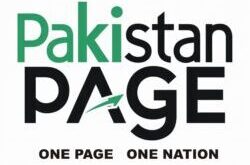PM Shehbaz outlines key steps in governance reform, economic digitization
ISLAMABAD: Prime Minister Shehbaz Sharif mentioned that his government had been concentrating on enhancing the governance system through institutional reforms and that significant progress had been made in advancing the digitization of the economy.
Speaking to a delegation of Harvard Business School students from nine countries, the prime minister welcomed them and acknowledged that internal and external debt had been a challenge for the economy. However, he expressed confidence that economic stability would soon address and overcome this issue.
He stated that digitizing of the Federal Board of Revenue (FBR) was a crucial milestone in economic reforms, for which the services of internationally renowned experts had been hired. He emphasized that the digitization of the FBR would aid in expanding the tax base.
The prime minister noted that facilitating the business community and investors in Pakistan, along with eliminating bureaucratic red tape, had been significant developments, with the establishment of the Special Investment Facilitation
Council (SIFC) playing a key role.
He also mentioned that efforts were underway to reduce the size of government and cut costs, including the ongoing work on downsizing and right-sizing federal ministries and institutions.
The prime minister announced that a homegrown economic plan for the next five years would be unveiled soon, developed in collaboration with experts.
He added that his focus was on implementing policies aimed at reducing elite control over resources and enhancing the welfare of the middle and lower classes. Additionally, efforts were being made to implement an export-led growth policy to help reduce the trade deficit.
The prime minister stated that Pakistan was rich in natural resources, highlighting Thar coal as a valuable energy source currently being used to meet the country’s power needs. He also mentioned that a comprehensive plan was being developed to modernize and advance the industry of precious and rare stones.
The prime minister said that promoting small and medium enterprises could drive significant progress in Pakistan, with the government taking substantial steps to achieve this objective. He also noted that Chinese expertise was being utilised to advance the agriculture sector, and that 1,000 Pakistani students and research scholars would be trained in modern agricultural techniques in China.
The prime minister noted that, for the first time, the country’s information technology-related exports had surpassed US$ 3.2 billion due to government efforts, which was a positive development. He acknowledged that Pakistan’s large youth population presented both a challenge and an opportunity and emphasized that efforts were underway to create a future filled with opportunities for this significant demographic.
Technical and vocational training for the youth was top priority for the government. Under an agreement with the Chinese company Huawei, 200,000 Pakistani students would receive annual training in the IT and telecom sectors. Additionally, work was underway to establish a Pakistan Education Endowment Fund modeled after the Punjab Education Endowment.
The network of Danish schools was also being expanded to reach remote areas of the country. These schools offered free, high-quality education to underprivileged students, along with complimentary accommodation and meals.
Advisory Councils for Overseas Pakistanis were operating within various ministries, allowing young expatriates to contribute to the country’s development through these platforms. Significant efforts were underway under the Prime Minister Youth Program to support the welfare of the youth.
The student delegation expressed their gratitude to the prime minister for participating in the interactive session and providing them with the opportunity to ask questions.
The meeting was attended by Federal Minister for Planning and Development Ahsan Iqbal, Federal Minister for Education and Professional Training Dr. Khalid Maqbool Siddiqui , Federal Minister for Information and Broadcasting Attaullah Tarar, Minister for Petroleum Ministry Musadik Masood Malik, Minister of State for Information Technology and Telecom Shaza Fatima, and Minister of State for Finance and Revenue Ali Pervez Malik. Special Assistant to the Prime Minister for Youth Affairs Rana Mashhood and other senior government officials were also present.

